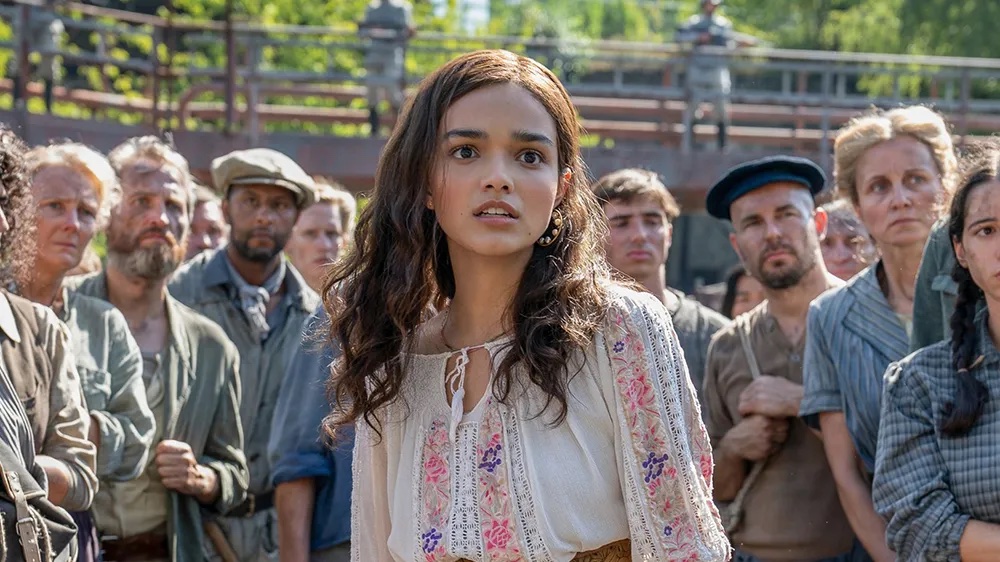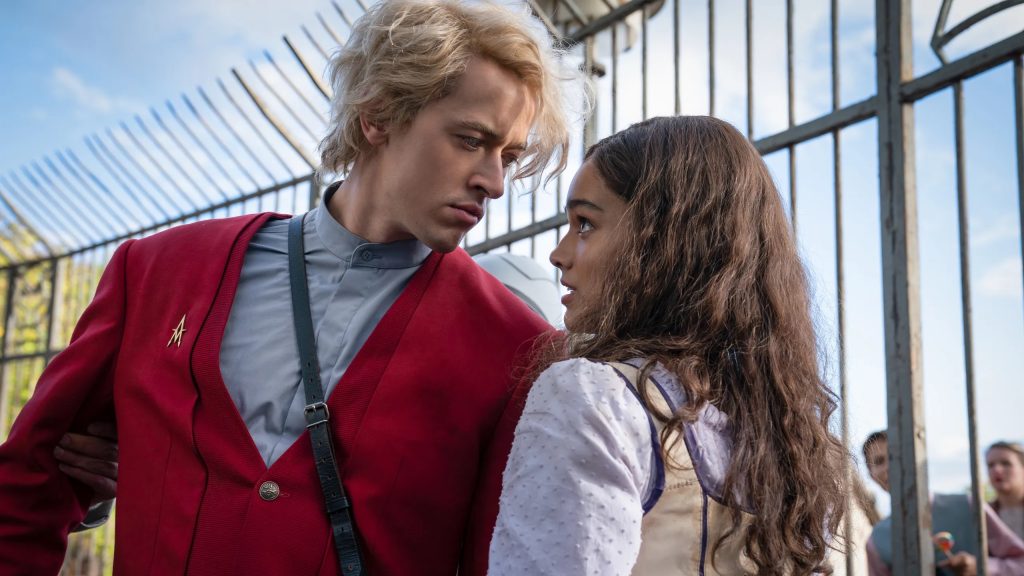Spoilers ahead
So. Let’s talk about Hunger Games.
Almost a month ago, an adaptation of Suzanne Collins’ newest book The Ballad of Songbirds and Snakes came out, promising to tell the story of a young Coriolanus Snow before his ascension to power. Directed by Francis Lawrence–the same guy who directed the last three movies of the original saga–and overseen by Collins herself, the movie promised to be an adaptation that would make it into many people’s Hunger Games annual rewatch.
And my verdict, dear reader, is that it probably won’t.
It obviously has many excellent moments and elements working in its favour, and it’s filled with callbacks to the original movies and books sure to make even the most skeptical viewer jump from their seats and yell, “Hey, just like the other movie!” But despite these small victories, what the movie does well isn’t enough to make up for all the other glaring mistakes it makes during its runtime. So, let’s discuss what works and what doesn’t in The Ballad of Songbirds and Snakes.
Part 1: The Good
The first thing I’d like to highlight is the movie’s resourcefulness. The book, you see, is not really about the Hunger Games. If anything, they are a small add-on in the story of Lucy and Coriolanus. That’s why, in the book, more than half the tributes die of sickness, starvation, and basically anything else other than the Games. This is obviously not cinematic, so the film opts for a regular bloodbath instead, to bring the story where it has to be without overwhelming the viewer with hospital scenes. And despite the problems this will bring eventually, I applaud their ability to concretize effectively a part of the story difficult to portray in film.

Another important point is that the movie capitalizes very well on things a book can’t, like sound, costuming, and music. I’d thank the sound designer personally if I could for their presentation of the Mockingjays, who always feel eerie in the book but gave me outright goosebumps when I heard them onscreen sinisterly echoing the cries of the dead. The costume department also does an excellent job, with all uniforms, dresses, and even overalls telling a compelling story of opulence, poverty and decadence that also bring a vivid colour palette to what can, at times, be a dark movie. Lucy’s vibrant dresses are particularly evocative, seemingly ripped straight from the book.
The movie’s take on Lucy’s ballads is what surprised me the most: full of power and personality, they enhance her character and all the scenes in which they appear. As I was reading, I kept wondering how they would adapt the songs, knowing how important they are to Lucy, the Covey, and their symbolism in the overall story— I’m happy to report that they nailed it.
But if I had to choose one element over all the good things this movie has, it’d definitely be Viola Davis’ interpretation of Dr. Gaul. So sinister. So playful. So unhinged. She brought to life what is arguably one of the book’s most memorable characters with masterful precision. Honestly, she single-handedly makes it almost worth a watch.
Almost.
Part 2: The bad
For brevity’s sake, I’ll only glaze over my other complaints so as to focus on the real problem this movie has.
First of all, the acting. Leaving aside Davis’ performance as Gaul and Jason Schwartzman’s as Lucky Flickerman, sometimes it feels like most of the cast doesn’t really want to be there, delivering flat and sometimes almost artificial performances in what otherwise should be dramatic and poignant scenes.
Second, the pacing. This is closely connected to the following point, but despite its 160-minute runtime the movie feels rushed at times, with an overload of exposition and worldbuilding in the first five minutes of the movie, an overemphasis on the Games that seems to try to justify the Hunger Games portion of the title, and rushed character development that obscures our main players’ motivations. Sejanus, for example, starts helping the rebels as soon as they get to District 12, even though in the book this doesn’t happen for at least a whole month, and leaves us wondering how blurred the line truly is between movie Sejanus’ idealism and his stupidity.
But the real problem of the movie is what ironically should have been its backbone: Lucy Gray Baird and Coriolanus Snow.

The book is largely internal, presenting most of the action through Snow’s eyes and revealing his motivations via internal monologue. It’s obvious that translating this style of storytelling to the screen is hard, but this is no excuse to have your lead actor deliver such a lacklustre performance. Instead of the witty, jealous, calculating manipulator we see on the page, the movie version of Snow comes off as confused, largely silent, and incapable of taking matters in his own hands. I’m willing to give them the benefit of the doubt and suggest the boring expression glued to Tom Blyth’s face is an effort to reproduce this cold, analytic look, but if that’s the case it doesn’t work the way they thought it would. The Snow we should have gotten from the beginning only appears in the third act, after he shoots Mayfair. Here is where we first see a calculating Coriolanus who’s capable of quickly turning a delicate situation to his own benefit, even after having just killed someone in cold blood.
This lack of interiority is also painfully reflected in his relationship with Lucy. Their ‘romance’ is the driving factor for the entire plot, and yet there is no real chemistry between them. They only get three interactions together before the start of the Games–only one of which gives any hint of emotion–and we are meant to believe this is enough to convince Snow to risk his whole future for her by cheating with the handkerchief episode. Similarly, whereas the book makes a strong effort to show that Snow is infatuated with Lucy, constantly describing her as his property, we don’t get such representation in the movie, which leaves us wondering where the romance could have possibly come from other than plot convenience. This obviously hinders the movie’s pacing, but it also makes Snow’s final decision to kill Lucy seem contrived, as if it came out of nowhere. Overall, the film lacks the book’s buildup necessary to get an emotional and fulfilling resolution.
Part 3: The Verdict
Ballad is by no means a bad movie. I could mention other quibbles –like the CGI-heavy version of the Capitol or the weird fact that people in District 12 speak with a Southern accent that’s absent in the original saga – but it would discredit the fact that this new iteration of The Hunger Games can stand on its own merits. Its problems, in my opinion, arise from a disorder in priorities: they probably wanted to focus more on the Games themselves, trying to appeal to a demographic who had no interest in reading the book and only wanted to see tributes fighting in the Games again. The movie does this masterfully, but it fails to acknowledge that the real essence of this story lies in its characters. Take that away and what remains is another prequel trying to base its success off the name of a famous IP, joining an ever-longer list of similarly mediocre Hollywood adaptations. Another name painting the ceiling of the arena in these treacherous games.
